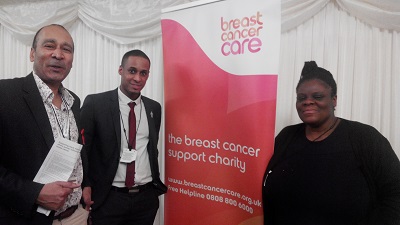It’s cervical cancer prevention week (24th to 30th Jan) so it’s an ideal time to remind everyone about the cervical cancer screening test- otherwise known as The Smear.
Cervical cancer is the most common form of cancer in women aged 35 and under and over 3,000 UK women are diagnosed with the disease each year.
The term cervical cancer describes the uncontrolled division/growth of abnormal cells in the neck of the womb (cervix). In over 99% of cases the cancer is caused by prolonged infection with a high risk strain of a virus known as human papillomavirus (HPV). HPV can spread between peoplethrough skin to skin contact in and around the genital area. HPV infection doesn’t lead to cervical cancer in everyone. However, as it’s such a common virus it is important that we do all we can to help prevent the occurrence or spot early signs of the disease. Below are 3 important steps:
1. Attend you smear test
During a smear test, a nurse or doctor removes a sample of cells from your cervix. These cells are then examined for any changes that might lead to cancer in the future. The process may be uncomfortable but it is over in a short period of time and is important in spotting potential problems. You should normally receive a request to attend a smear test from the age of 25. But if you do not receive one or are below 25 and have any concerns about your cervix – speak to your GP. Women from ethnic minorities are less likely to attend their smear appointments. This short video discusses the reasons for this.
2. Be aware of the symptoms of cervical cancer
Changes to the cells of the cervix do not usually cause symptoms. But if these changes become cancerous they can lead to symptoms such as:
· Unusual bleeding (e.g. during or after sexual intercourse, between periods, after the menopause)
· Unusual vaginal discharge
· Discomfort or pain during sex
· Lower back pain
· Changes to the frequency of urination
· Blood in the urine
· Rectal bleeding
· Diarrhoea
· Incontinence
· Leg swelling
Many of these symptoms may be associated with other conditions and have nothing to do with cervical cancer. But it is always best to get them investigated by seeing your GP as soon as possible.
3. HPV vaccine
Another nationwide programme which helps to reduce the occurrence of cervical cancer is the HPV vaccination programme. The NHS routinely offers vaccinations to girls aged 11–13 in Scotland and 12–13 in the rest of the UK. Girls normally receive the vaccine in school, but they can also receive it from their GP. The vaccine is free for all girls aged 11–17 in Scotland and 12–17 in the rest of the UK. The vaccine does not offer 100% protection against cervical cancer so anyone who has received it still needs to regularly attend their smear appointments as do all women seeking to prevent cervical cancer.
Please have a look at some women’s experiences of cervical cancer and let us know your thoughts. The smear test may not be pleasant- but is skipping it a risk worth taking?












